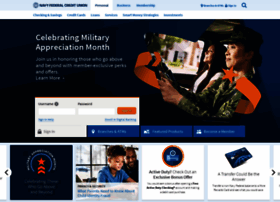

Candor is expected, as well as protected, to prevent (or detect and address) legal or ethical issues that could derail or shut down the business. Leaders trust employees to challenge myopic directives, and they empower team members to own decisions that safeguard long-term resilience. Organizations with a culture of integrity don’t sacrifice doing the right thing for short-term profit. When leaders recognize the connections between psychological safety and resilience, they can model the behaviors that welcome candor - and set expectations throughout the organization to enhance integrity, innovation, and inclusion. Like animals that sense a predator in the forest, humans tend to stay quiet in a workplace form of “freeze” (from the “fight/flight/freeze” reaction) unless we know we can safely speak up with concerns, fresh ideas, or unique perspectives. Because our brains are hardwired to keep us safe, our default mode is to presume some level of threat in most environments. Psychological safety does not happen automatically. The fear of retaliation for speaking up compromises integrity, curbing creative ideation leads to stagnation, and disrespectful interactions have a disproportionately toxic impact on engagement and belonging. Both integrity and inclusion are key elements of assessing an organization’s ESG (environment, sustainability, and governance) commitments and performance.īeyond their direct impacts on the bottom line, the three dimensions share an intrinsic connection: Psychological safety is at their core, and any breach erodes their foundation. Ethical business behavior (integrity) enhances financial performance, employees who generate and share more ideas improve profitability through innovation, and organizational diversity predicts higher financial returns (inclusion). The simple business case for each dimension of resilience is well known. Psychological Safety as the Foundation of Resilience In this article, we explain why psychological safety is necessary for the highest expression of integrity, innovation, and inclusion explore the obstacles to investing in psychological safety and illustrate how senior leaders can overcome these obstacles to boost resilience.
#Www myaccounts navyfcu org how to
To strengthen resilience, leaders must understand how to connect these three siloed dimensions of culture and develop leadership attributes that encourage candor. These sustain business continuity, competitiveness, and growth - the intersection of these three dimensions forms the core of a psychologically safe culture. Inclusion: Authentic respect and belonging.Innovation: Fearless collaborative creativity.Integrity: Ethical leadership and courageous candor.Three cultural dimensions are critical for resilience: But to weather uncertainty, organizations also need to make psychological safety a strategic priority, creating a culture where employees can comfortably raise concerns, contribute ideas, and share unique perspectives. Much has been written about psychological safety’s role in improving workplace wellness and even in helping stem the tide of the Great Resignation. By making resilience a strategic priority, leaders ensure that their organizations can stretch and adapt. The pandemic, geopolitical instability, and unpredictable markets have made organizational resilience like food in the desert: critical for survival, but challenging to grow.


 0 kommentar(er)
0 kommentar(er)
